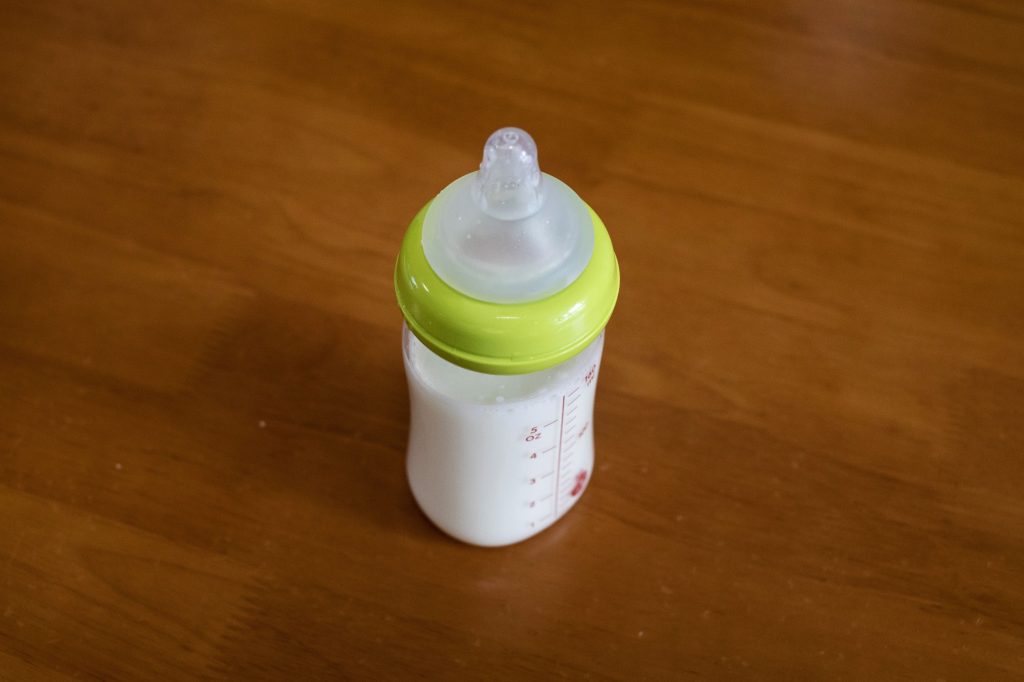Makers of infant formula use misleading marketing and aggressive lobbying tactics to drive sales in a $55 billion-a-year industry, according to a three-paper series from the World Health Organisation.
Manufacturers make unsubstantiated claims about their products, such as that they are very similar to actual breast milk or can ease infants’ discomfort, say the WHO papers published Tuesday in The Lancet medical journal calling for an industry crackdown. New products, such as hypoallergenic or organic formulas or those derived from the milk of sheep and goats, are sometimes marketed with the implication that they have special benefits and are sold at premium prices, the authors said.
The reports also criticise the industry for targeting health professionals, caregivers and families through pervasive social media, promoting formula as a positive choice and devoting huge resources to lobbying against legislation to protect breastfeeding.
The US infant formula supply has been scrutinised since a recall by Abbott Laboratories that was linked to contaminated products led to a nationwide shortage. Yet concerns about the global industry’s outreach, particularly in developing countries, goes back to the late 1970s, when women were discouraged from breastfeeding their children, the WHO says, denying them key health benefits needed in childhood. That problem remains despite public-health efforts to get more women to breastfeed, according to the Lancet series.
“The formula milk industry uses poor science to suggest, with little supporting evidence, that their products are solutions to common infant health and developmental challenges,” said Linda Richter, a developmental psychologist at the University of the Witwatersrand in South Africa. The technique violates the WHO’s 1981 International Code of Marketing of Breast-Milk Substitutes, which advises against free samples and sets standards for labeling, said Richter, who helped write the reports, in a statement.
Marketing code
Nestle SA, Abbott, Reckitt Benckiser Group, Danone, China Feihe Ltd and Dutch dairy cooperative Royal FrieslandCampina are among the biggest makers of infant formula. None of the companies were directly accused of unethical marketing or lobbying by the international coalition of researchers. The reports reviewed 153 studies to show how marketing practices have violated the WHO’s code in nearly 100 countries since its 1981 adoption.
Nestle said it’s prepared to encourage implementation of the WHO code in legislation. The Swiss company said it fully complies with the code and like Danone, doesn’t promote formula for infants up to 6 months. Nestle, Danone and Reckitt ban promotion for formula for infants up to 12 months old in some countries. Reckitt said it’s complying with all local laws and regulations or its own rules, and FrieslandCampina said it complies with national legislation implementing the code.
Consuming commercial formula has been normalised, the reports charged, despite scientific evidence that breastfeeding provides superior energy and nutrients while reducing infection risks and lowering rates of obesity and chronic diseases in later life. Still, fewer than half of infants under 6 months are exclusively breastfed, as WHO recommends. The agency suggested greater support for breastfeeding with measures such as giving women paid maternity leave so they won’t need to work following delivery, when infants most need breast milk.
“Within health we need to acknowledge the influence of corporate power in prescribing practices,” Guddi Singh, a paediatrician and health campaigner said at a WHO briefing.
While it’s been in place for decades, WHO’s marketing code for formula has done little to stem sales. Only 32 countries have legal measures that substantially align with the code and multinational manufacturers continue marketing the substitutes, according to the international agency.
© 2023 Bloomberg

